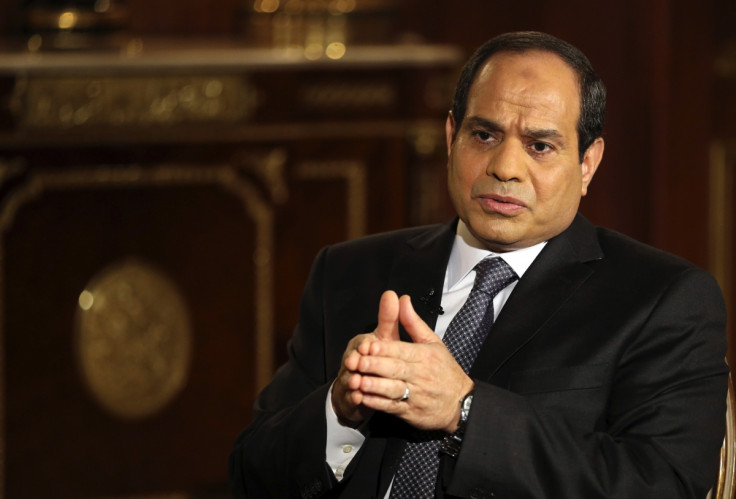Egypt Goes to Polls, Former Army Chief Abdel Fattah al-Sisi Frontrunner

Egypt is going to the polls to elect a new president, three years after mass protests attempted to usher in an era of democratically elected government.
Elections will be held across the country over the next two days to replace the interim government which overthrew the Muslim Brotherhood-backed Mohamed Morsi last year.
Former army chief Abdel Fattah al-Sisi, who had supported the revolt against Morsi, is seen as most likely to win the election.
Al-Sisi's opponent is Hamdeen Sabahi, a leftist politician, who had finished third in the 2012 polls, which brought Morsi to power.
Over 400,000 security personnel have been deployed across the country to ensure peaceful polling, with an expected turnout of up to 45 million voters. The counting of votes will begin on 28 May and the results will be declared on 5 June.
Al-Sisi, who has emerged as the most powerful figure in Egypt in the last ten months, is reportedly popular among the masses and has the backing of the country's state institutions, factors that may weigh heavily in his favour.
Al-Sisi has taken a tough stand against the Muslim Brotherhood and terrorist outfits such as the Ansar Beit al-Maqdis (Champions of Jerusalem) and the Ajnad Misr (Soldiers of Egypt).
"Egypt will not bow to terror," said a poster on a street with the leader's photograph.
Hundreds of security men and civilians have been killed by terrorists in recent months, and the interim government under the de-facto reign of al-Sisi have launched a massive operation to wipe out militant groups.
The Muslim Brotherhood has been declared a terrorist organisation and several thousands of its members including senior leaders have been put behind bars. Over 1,000 brotherhood supporters were given the death penalty for abetting terrorism and violence, according to Reuters.
Al-Sisi is seen as having wide support among ordinary Egyptians, who have grown weary of the Brotherhood and the radicalism it espouses. They reportedly believe that the former army strongman can bring an end to the terrorism in the country and solve its myriad economic problems.
"The challenges present in Egypt are so many," al-Sisi told Reuters in an interview.
"I believe that within two years of serious, continuous work we can achieve the type of improvement Egyptians are looking for."
Al-Sisi's critics accuse him of orchestrating the coup against Morsi, and then standing in the elections a few months later. They fear that like past army generals, he will be authoritarian and safeguard the interests of the military elite.
© Copyright IBTimes 2025. All rights reserved.



















